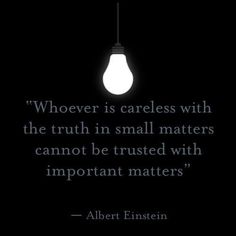I’ve always been a stickler for honesty in relationships. I believe we should be up front about the terms of any relationship: what we’re looking for, what we’re willing to give, what we expect to receive.
I abhor the “don’t ask, don’t tell” approach to faking exclusivity. I loathe deceptive, manipulative tactics like “push-pull” or “negging,” which are designed to increase anxiety or insecurity in a “target” for your own benefit. A neg may technically be true – “You have cute pointy vampire teeth” – but its goal is not truth, it’s personal gain.
I don’t want to know everything my partner is thinking. My ass looks fat in these jeans. The woman across from us on the train is so lovely. He’s agreeing to sex to be kind even though he craves sleep more. He can’t figure out why I thought pork with orange sections and shredded coconut sounded like something I should cook for dinner. (My parents had a huge fight about this once.)
I don’t expect him to point out that the woman is busted, or request the Tropical Fruit Pork Casserole again soon. Yet diplomacy and tact in society traditionally dictate that “when we can’t say anything nice, we shouldn’t say anything at all.”
Truth in relationships is not straightforward. We strive for balance. Where do we draw the line? If we use “preserve our partner’s feelings” as a guide, then we quickly get into the murky territory of cheating: “What he doesn’t know won’t hurt him.”
If we embrace a policy of “full disclosure,” we’re sharing a lot of stuff that may prove threatening to our partner even if we know it’s meaningless: “I dreamed about my ex again last night.”
We tell white lies when we weigh the cost of telling the truth and find it too high, either for the other party, ourselves, or both.
Lying to soften initial rejection
Women frequently use white lies to reject unwanted attention from men. They’re far more likely to tell an interested stranger they have a boyfriend than to say they’re not interested or don’t find him attractive. They do this for two reasons:
- They believe this approach is empathic, in that it allows the unsuccessful candidate to save face.
- Most women have had men respond to rejection angrily, which is unnerving or even scary.
Dating coach Evan Marc Katz is in favor of the “diluted truth” approach when a woman is rejecting a man, and agrees that women need to reject with finality:
“It’s not a negotiation; it’s a declaration.
You don’t have to explain why you don’t like him. You don’t have to promise to stay in touch as friends. You don’t have to do anything, except give him a slightly diluted version of the truth, so you don’t hurt his feelings when you reject him.
Sure, he can press you on WHY you didn’t feel it for him. Sure, he can write you a note that says that he thinks you’re a bitch and that you’ll die old alone. But that has nothing to do with you. You can rest easy, knowing that you did the classy thing, and that there’s nothing else that you can do to make it go down any easier.”
Lying to soften rejection at the breakup
Of course, both sexes use the clichéd “It’s not you, it’s me” to effect a breakup with minimal drama and hurt.
Withholding the truth to maintain privacy
The HuffPo article The Lies You Should Tell When Dating recommends withholding some truths when it comes to past relationships. When asked about previous sexual partners or the timeline of her last relationship, the writer explicitly declines to answer the question. This is perfectly fair – the inquiring party is free to judge her unwillingness to share, but is not entitled to that information.
Generally, if a person is worried about the sexual experience of the other party, it’s not a match. (Or rather, it’s a sociosexuality mismatch.)
Lying to smooth out sex
Let’s not forget lies during sex:
70% lied out of empathy (however misguided!). And it’s not just women – according to one survey, 21% of straight men admitted to faking orgasms.
Lying to self
Finally, there are the lies we tell ourselves. We celebrate the reluctant commitment we wheedled out of the guy we know would prefer FWB. We pretend that the emotionally unavailable grump is learning to trust us and that the slight uptick in intimacy will last forever. Or that the guy who cheated on his ex is not the type to cheat on us.
But it can be really, really difficult to know what’s true.
Ultimately, I think we should go through the world being as kind as we possibly can. Sometimes that means telling white lies.
“You’re a beautiful bride!”
“That’s the cutest baby I’ve ever seen!”
“Fine, thanks, how are you?”
When kindness today means greater pain for that person later, then the white lie is a selfish act designed to make your own life easier.
“I’m not seeing anyone else at the moment.” (But I hope to this week.)
“I really like you a lot, I think this is a game changer.” (The game will be up once we have sex.)
“It’s not like that, we’re just friends at the office.” (But if I can convince her to dump her boyfriend, I wanna hit that.)
Famous quotes about white lies tend to be pretty negative:



This is a joke, right?
What are your personal guidelines and boundaries? How do you protect yourself against lies? How do you protect others against a hurtful truth?
What would life be like if we told no white lies or always shared the truth?






